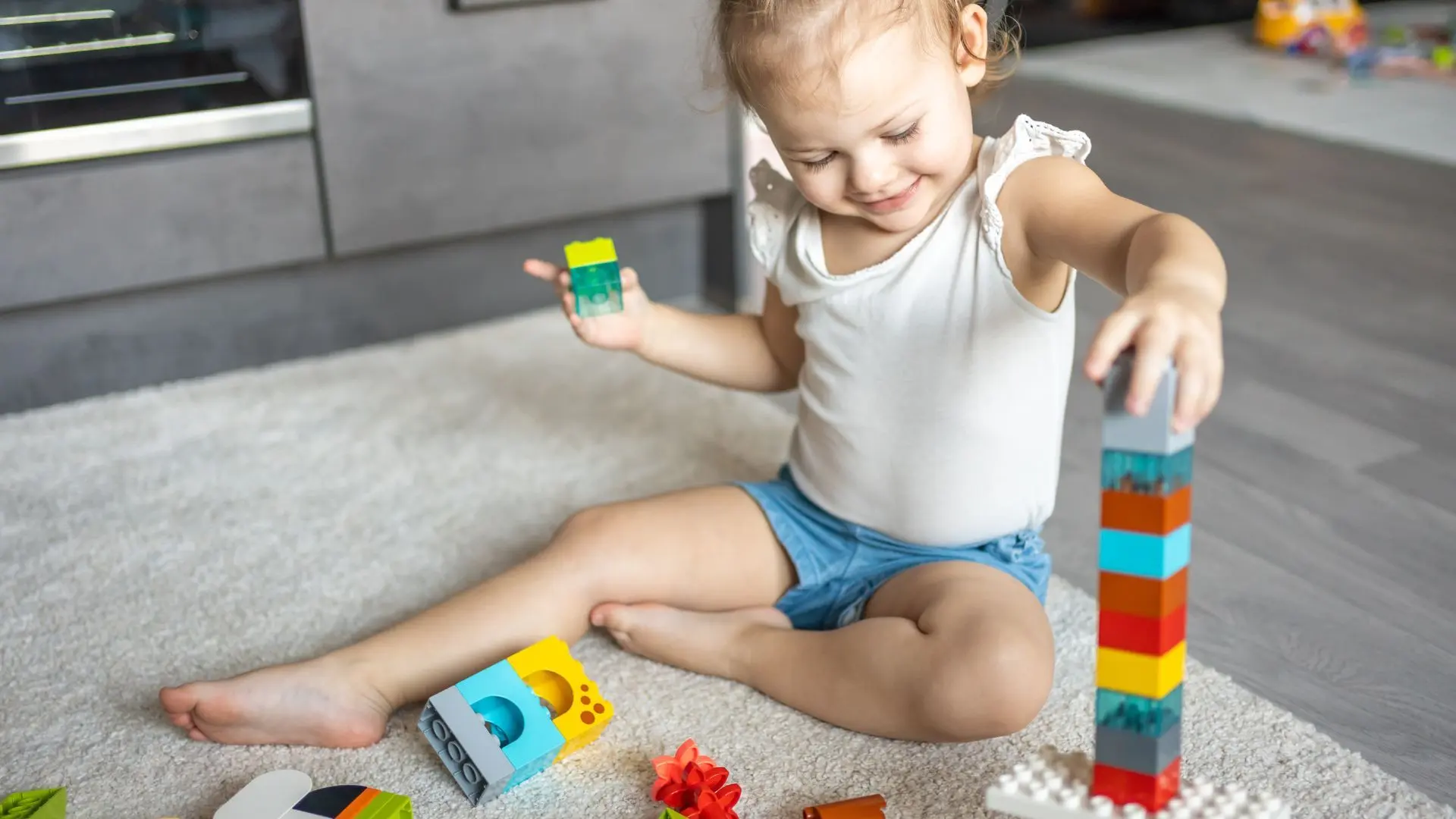Do you know what happens in the stages of Child Development from 0-18 years and why are they so important? Learn about key milestones and how to support your child’s development with expert advice.

Child development is a journey that begins at birth and continues through adolescence, with each stage presenting unique milestones and challenges.
Did you know that the first five years of a child’s life are the most critical for brain development, with 90% of a child’s brain growth happening during this period? By age three, toddlers typically know 200 words, highlighting the rapid pace of language development. As children enter school-age years, their social skills and academic abilities expand significantly, setting the stage for future success. Adolescence brings a 20% growth spurt in height and major cognitive advancements, preparing teens for adult responsibilities.
Understanding child development is essential not just for alleviating our worries but for fostering our children’s lifelong success. Parenting a child’s development path involves more than just love; it requires informed decisions and active engagement.
In this blog, we’ll uncover the secrets of child development, providing you with the knowledge and practical tips to confidently guide your child through each fascinating stage.
What is Child Development and Why is it so Important?
Child development encompasses the physical, cognitive, emotional, and social changes that occur from birth to the end of adolescence.
Understanding these changes is crucial for supporting your child’s growth and helping them reach their full potential. Developmental milestones provide a framework to understand what is typical at different ages, allowing us to recognize and nurture our children’s unique paths.
How Does Child Development of Each Stage Look Like?
Infancy (0-1 Year)
Infancy is a period of remarkable growth and change. During this first year, your baby will undergo significant physical, cognitive, and emotional development. You’ll witness milestones like the first smile, the first laugh, and the first steps.

- Physical Milestones: By six months, most infants can roll over, sit with support, and begin to explore their surroundings. By the end of the first year, many babies can crawl, stand, and even take their first steps.
- Cognitive Milestones: Cognitive development includes the ability to think, learn, and remember. Infants begin to recognize familiar faces, respond to their names, and develop object permanence—the understanding that objects continue to exist even when they are out of sight.
- Emotional Milestones: Emotional development in infancy is centered around bonding and attachment. Secure attachment to caregivers provides the foundation for healthy emotional growth.
- What Parents Should Do: To support your infant’s development, ensure they have plenty of tummy time, engage in interactive play, and provide a safe, nurturing environment. Reading simple picture books, singing nursery rhymes, and gentle rocking can all contribute to your baby’s development. Remember, every baby develops at their own pace, so celebrate each unique milestone.
Toddlerhood (1-3 Years)
Toddlerhood is often referred to as the “terrible twos,” but it’s also a time of incredible growth and exploration. During this stage, children develop rapidly in motor skills, language, and social-emotional areas.

- Physical Milestones: Toddlers learn to walk, run, climb, and gain better control over their movements. Fine motor skills improve as they learn to feed themselves, draw, and build with blocks.
- Cognitive Milestones: Language development is a hallmark of toddlerhood. Toddlers begin to use simple sentences, ask questions, and express their thoughts and needs. Their cognitive abilities expand as they engage in pretend play and solve simple puzzles.
- Social and Emotional Milestones: Toddlers start to assert their independence, often leading to the famous “no” phase. They also begin to develop empathy and show interest in playing with other children.
- What Parents Should Do: Encourage your toddler’s independence by offering choices and setting safe boundaries. Engage in activities like building with LEGO bricks, which enhances fine motor skills, or playing dress-up, which sparks imagination. Reading together, engaging in imaginative play, and providing opportunities for physical activity like visits to the playground or playing in the backyard are also great ways to support their development. Being patient and offering positive reinforcement are essential during this phase.
Early Childhood (3-6 Years)
Early childhood is a time of building foundations for future learning and development. Children in this stage make significant strides in cognitive, social, and emotional areas.
- Cognitive Milestones: Preschoolers’ cognitive skills blossom as they learn to count, recognize letters, and understand basic concepts like time and cause and effect. They become curious about the world and ask countless questions.
- Social and Emotional Milestones: Social skills develop rapidly during early childhood. Children learn to share, take turns, and form friendships. Emotional regulation improves, though they still need guidance in managing big feelings.
- Role of Play: Play is crucial in early childhood development. Through play, children explore their creativity, develop problem-solving skills, and build social connections. Encourage various types of play, from free play to structured activities.
- What Parents Should Do: Foster a love for learning by reading daily, providing educational toys, and engaging in hands-on activities like building science projects at home. Support social skills by arranging playdates with friends or participating in community activities like library story hours. Encourage your child to express their feelings and guide them in developing empathy and cooperation.
School-Aged Children (6-12 Years)
The school-aged years are marked by academic achievements and expanding social horizons. Children in this stage continue to develop cognitively, emotionally, and socially.

- Cognitive Milestones: School-aged children develop critical thinking skills, improve their reading and writing abilities, and begin to grasp complex concepts in subjects like math and science. They become more independent learners.
- Social Interactions: Friendships become more important, and peer relationships influence behavior and self-esteem. Children learn to navigate group dynamics and develop a sense of belonging.
- Encouraging Extracurricular Activities: Participation in sports, arts, and other extracurricular activities enhances social skills, self-discipline, and time management. Encourage your child to explore different interests. For example, joining a soccer team can teach teamwork and perseverance, while participating in a school play can boost confidence and creativity.
- What Parents Should Do: Support your child’s academic growth by maintaining a positive attitude towards learning and being involved in their education. Help them with homework, encourage healthy social interactions, and provide a balanced routine that includes time for play, study, and rest. Attend school events and parent-teacher conferences to stay engaged in their educational journey.
Adolescence (13-18 Years)
Adolescence is a time marked by significant physical, emotional, and cognitive transformations. Teenagers strive for independence and identity formation while navigating the challenges of puberty.

- Physical Changes: Puberty brings significant physical changes, including growth spurts, hormonal shifts, and the development of secondary sexual characteristics. These transformations can impact self-esteem and body image.
- Emotional and Cognitive Changes: Adolescents develop abstract thinking and critical reasoning skills. They begin to form their own values and beliefs, often questioning authority and seeking independence.
- Identity Formation: Identity formation is a central task of adolescence. Teens explore different roles and identities, including their cultural, sexual, and personal identities.
- What Parents Should Do: Support your teen by fostering open communication, providing guidance while respecting their need for independence, and encouraging healthy lifestyle choices. For example, engaging in family dinners can promote open dialogue, while supporting their hobbies—like joining a debate team or volunteering—can help them develop a sense of purpose and belonging. Be mindful of their mental health and offer support during challenging times.
What Should Parents be Mindful of?
Understanding child development involves recognizing universal truths and key facts that apply across all stages. Here are eight essential points to remember, based on research:
- Children are active participants in their own development: When children are not actively engaged or given opportunities to explore, their brain development can be hindered. Lack of stimulation can lead to delays in cognitive and social skills, as the brain thrives on active learning and interaction.
- Development follows well-documented sequences: Ignoring these sequences can result in developmental delays. For example, skipping foundational skills like crawling can affect motor coordination and brain connectivity, making future learning more challenging.
- Development is multi-dimensional: Focusing solely on one area of development, such as academics, while neglecting physical, emotional, or social growth, can create imbalances. A child’s brain needs a holistic approach to fully develop, with each dimension supporting the others.
- The brain develops rapidly in the early years: If early experiences are negative or lacking in stimulation, the brain’s architecture can be adversely affected. Stressful environments, lack of nurturing relationships, and insufficient learning opportunities can impede healthy brain development during this critical period.
- Early experiences have lasting effects: Negative early experiences, such as trauma or neglect, can lead to long-term deficits in emotional regulation, cognitive abilities, and social relationships. The brain’s plasticity in early years means that both positive and negative experiences have profound and lasting impacts.
- Secure, responsive relationships are vital for healthy development: Without secure attachments, children can experience heightened stress and anxiety, which negatively impacts brain development. Consistent, loving relationships are crucial for emotional and social development, fostering a sense of security and confidence.
- Development is influenced by multiple contexts: A child’s brain development can be adversely affected by negative influences from family, community, and cultural contexts. Exposure to violence, poverty, or discrimination can lead to chronic stress, which disrupts brain development and function.
- Children’s development can be affected by stress and adversity: Chronic stress, such as that caused by family instability, bullying, or economic hardship, can impair brain function. It can affect areas of the brain responsible for learning, memory, and emotional regulation, leading to difficulties in school and social situations.
What Are the Practical Tips for Supporting Child Development for Each Stage?
Supporting child development involves creating a nurturing environment that promotes growth in all areas. Here are some practical tips:

- Infants: Ensure plenty of tummy time, engage in interactive play, and respond to their needs promptly. Reading simple picture books and singing lullabies can be comforting and stimulating.
- Toddlers: Offer choices to foster independence, engage in pretend play, and provide opportunities for physical activity. Activities like playing with building blocks or visiting local parks can be beneficial.
- Early Childhood: Read daily, encourage imaginative play, and support social skills development. Activities like visiting museums or participating in community sports leagues can enhance learning.
- School-Aged Children: Maintain a positive attitude towards learning, support healthy social interactions, and encourage extracurricular activities. For example, participating in Scouts or 4-H clubs can provide diverse learning experiences.
- Adolescents: Foster open communication, respect their need for independence, and support mental health. Encouraging participation in community service or local youth groups can help teens develop a sense of responsibility and community.
Conclusion
Child development is a journey filled with wonder, challenges, and incredible growth. By understanding the stages of development and providing supportive environments, we can help our children thrive. Remember, every child is unique, and their development will reflect their individual path. Celebrate each milestone and support them with love, patience, and guidance.
Thank you for joining me on this exploration of child development. As you continue on this journey, I encourage you to Share your thoughts and experiences in the comments below.
You may also be interested in : What is Mother abandonment and how does it Affect children?